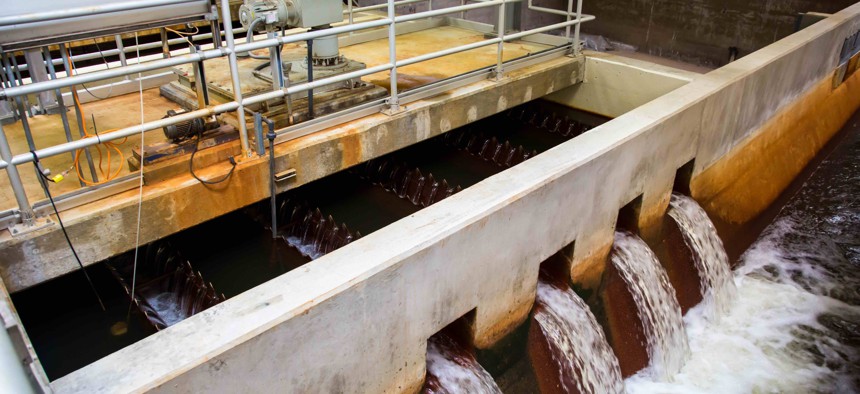Rural Water Group Keeps Up Push for Changes to Lending Programs

A water treatment facility in Casper, Wyoming. shutterstock

Connecting state and local government leaders
The utility group wants the changes included in a final version of water infrastructure legislation taking shape in Congress.
Rural water utility advocates are keeping up pressure on congressional lawmakers to include changes to water and wastewater financing programs in a broader water infrastructure bill.
The National Rural Water Association sent an advisory to its members this week telling them that House and Senate committees are in discussions to reconcile their different versions of the 2018 Water Resources Development Act, or WRDA legislation.
Included in the Senate bill are provisions to blend elements of two federally backed lending programs. The provisions are favored by the rural water association, but have drawn opposition from other utility groups whose members include bigger and more urban utilities.
The National Rural Water Association has provided a draft letter for its state affiliates to send to House lawmakers calling for the language in the Senate bill to remain intact in the final legislation.
U.S. Rep. Greg Walden, the Oregon Republican who chairs the House Energy and Commerce Committee, and the panel's top Democrat, U.S. Rep. Frank Pallone, of New Jersey, are the main targets of the lobbying effort.
The legislation that the provisions emerged from is known as the Securing Required Funding for Water Infrastructure Now Act, or SRF WIN Act. U.S. Sens. John Boozman, an Arkansas Republican, and Cory Booker, a New Jersey Democrat, spearheaded that bill.
It involves the clean water and drinking water state revolving funds, and the Water Infrastructure Finance and Innovation Act, or WIFIA.
With the revolving funds, the Environmental Protection Agency awards "capitalization grants" to states. States contribute a 20 percent match, and then use the funds to provide low-cost loans and other financing assistance to water and sewer utilities for projects.
WIFIA deals with the federal government lending directly for projects at interest rates in line with the generally low rates for U.S. Treasury debt. Eligible projects need to be at least $5 million in communities with 25,000 people or less and at least $20 million in larger places.
Rural water utilities have argued that because their projects tend to be smaller, WIFIA is of only limited use to them. They have other criticisms of the program as well, notably that it fails to adequately incorporate "need" and state priorities into the selection of projects.
(Need here refers to considerations like the costs utilities face complying with federal regulations and the ability of local ratepayers to afford project expenses.)
The rural utility group says that the SRF WIN Act would help address these issues by extending WIFIA's lending terms to the revolving funds and, in turn, giving them a better opportunity to take advantage of the program's benefits.
But groups like the American Water Works Association, which says that it represents almost 4,000 utilities that supply 80 percent of the nation's drinking water, have opposed the SRF WIN Act, saying that it would undermine WIFIA and its ability to support large projects.
In the form letter to lawmakers, the National Rural Water Association says that about 70 percent of both clean water and drinking water state revolving fund dollars go to "large communities" and that the key distinction between the revolving funds and WIFIA is that the revolving funds prioritize projects based on "need and states' priorities," adding: "WIFIA has no similar required targeting."
House lawmakers approved their WRDA legislation in June. A full Senate vote on its version of the legislation hasn't happened yet.
The House bill focused more narrowly than the Senate version on Army Corps of Engineers programs, which are generally the main focus of WRDA legislation. The Corps has a hand in infrastructure projects like harbors, locks, dams and reservoirs.
In addition to delving into WIFIA and the revolving funds, the WRDA legislation the Senate Environment and Public Works Committee approved in May gets into other issues that have to do with the Environmental Protection Agency and water and sewer utilities.
More coverage on the WRDA legislation can be found here:
Bill Lucia is a Senior Reporter for Government Executive's Route Fifty and is based in Washington, D.C.

NEXT STORY: How to Make Scooters in Cities Safer





